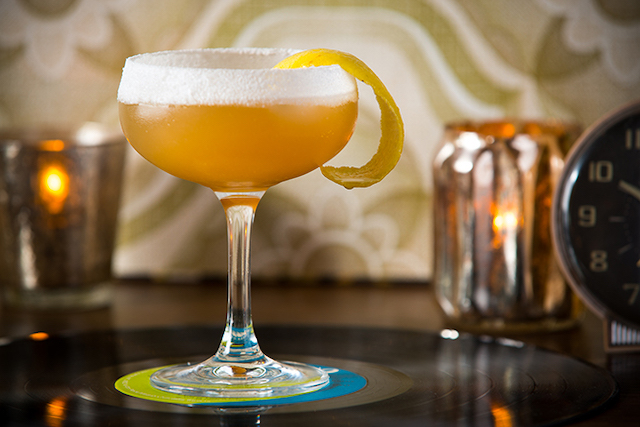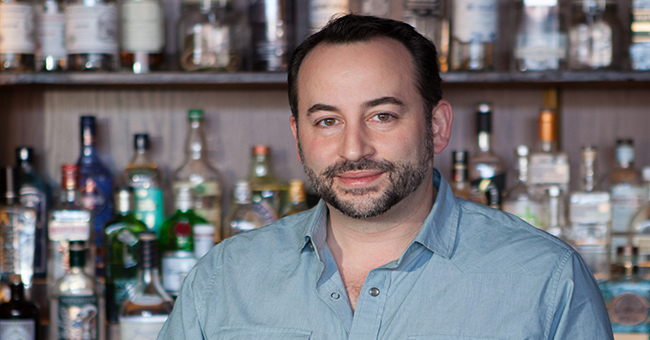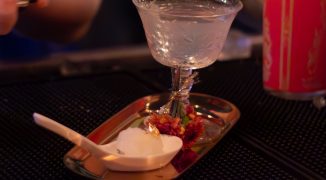Tell anyone 15 years ago you were packing up your day job to become a beverage consultant, and you’d likely get a mixed reaction of cocked heads and wide-eyed looks. But that job title has quickly nestled its way into today’s bartending scene with an increasing rise in popularity that Chicago bartender and bar consultant Peter Vestinos credits, naturally, to the cocktail renaissance that’s been unfolding over the past decade. “Places are recognizing that they need to offer better cocktails because they need to compete in a very tough market,” he says. “So many restaurants and bars are opening up that you really do need to stay relevant.”
And “better cocktails,” as Vestinos puts it, doesn’t necessarily translate to groundbreaking, show-stopping, and jaw-dropping drinks. “If you’re hiring a consultant, they’re probably not going to come up with anything insanely out of this world or difficult in terms of cocktails,” he explains. “You’re probably offering a pretty straightforward and simple cocktail menu, but you really need help on the execution side of it.”
Vestinos speaks from experience. After receiving several phone calls from friends to help open their own bars, Vestinos decided to formalize his freelance work into BarMedic, a bar consulting company that he launched in Chicago in 2011. His services run the gamut, from full-blown bar program build outs, to Bartender Bootcamps, which entail 45 hours spent examining the finely tuned details of classic cocktails, from different types of sugars and syrups, to the practices of stirring and jiggering.
Admittedly, consulting work will slow down a bit when you have another job in the works — let alone two. In addition to his projects within BarMedic, Vestinos splits his time as a beverage director at two popular spots in Chicago: The Betty, a gin-focused restaurant and bar in the West Loop, and Sparrow, a bar boasting a rum-driven menu that opened on the Gold Coast this November. It’s a balancing act that Vestinos finds to be much more realistic as a beverage director than a bartender.
 Aside from his time spent consulting, Vestinos works as the beverage director for Sparrow, a bar boasting a rum-driven menu (including the likes of the cocktail pictured), as well as The Betty, a gin-based cocktail bar. Photo by Nick Fochtman.
Aside from his time spent consulting, Vestinos works as the beverage director for Sparrow, a bar boasting a rum-driven menu (including the likes of the cocktail pictured), as well as The Betty, a gin-based cocktail bar. Photo by Nick Fochtman.
“If you have a job where you oversee a beverage program and you’re not behind the bar every night, it’s a little more flexible for you because you do those jobs at different and varying hours,” he says. Still, he confirms, it’s not impossible — so long as you know your limits. “If someone with a full-time bartending job wants to take on another role — whether it’s as a brand ambassador or a bar consultant — you really have to be clear about what your time commitment is going to be each week, and you have to be prepared for those variables, like someone calling off sick at the bar.”
There are also some big differences between tending bar and consulting — right down to the face time you have with guests. “I try to make sure the bartenders’ faces are out there and not my own, because those are the ones the guests will be seeing everyday,” says Vestinos. It’s that friendly banter that he soon learned to miss most as his time within BarMedic increased. “I started to get jealous of that because I want to be back there talking to guests and getting to know them a little bit,” he says. “That’s still the hardest thing for me — trying to be the person behind the curtain.”
But if you can live with the idea of stepping out of the spotlight and can swing it schedule-wise, the payoff can be big. Experienced consultants can charge anywhere from $500 to $1500 for spirit category training and from $10,000 to $15,000 for a full beverage program build out. But Vestinos’ favorite part? A flexible schedule that allows for weekends off and travel. Freedom to eventually pick and choose your clients packs big appeal, too: After building out an education campaign with the West Indies Rum & Spirits Producers’ Association, Inc. (WIRSPA), Vestinos spent a week traveling the country to educate bartenders on the authenticity standards of Caribbean Rum — and that’s after a four-day research trip in the Caribbean.
If you think beverage consulting is the gig for you, read on for Vestinos’ practical takeaways for making the transition.
Get some management experience.
It’s not all about the bartending, and Vestinos points out that it’s wise to get some managerial experience under your belt before seriously pursuing a consulting career. “It’s good to spend several years as a beverage manager, bar manager or general manager because you’re managing vendors, you’re managing suppliers, and you’re managing employees — and that’s a big part of the job.”
Take your work seriously.
While he’s all for balancing work and play, Vestinos shies away from nonstop partying within the industry. “There are some great cocktail weeks out there, but when you start seeing a bartender at every single one of them, it’s like, ‘you’d learn so much more if you spent time at your restaurant getting to know your systems and spending time with your bartenders and with your guests.’”
Stay up to date on trends.
You may not see an imminent point in reading up on cocktail trends that are making their umpteenth comeback within 10 years, but Vestinos assures that there is one. “Sometimes as professional bartenders, when we see the magazines and newspapers writing about Moscow Mules again, we may wonder why — but then you have to remember that the audience coming to your bar might be getting the first taste of this drink through these magazines and newspapers.”
Set clients up for success.
It may feel easy to get swept away in the freedom of creating beverage program after beverage program, but it’s important to keep in mind your role within your client’s end goal. “Don’t do a cocktail program that’s going to impress your friends. Do a cocktail program that’s going to attract customers and one that will be able to be executed for those guests at that restaurant,” says Vestinos. “Maybe you want to draw attention to all these tinctures and infusions and syrups, but that would require you being there everyday,” he says. “You want to set up a system that you can hand off to someone that doesn’t scare the clientele away.”




